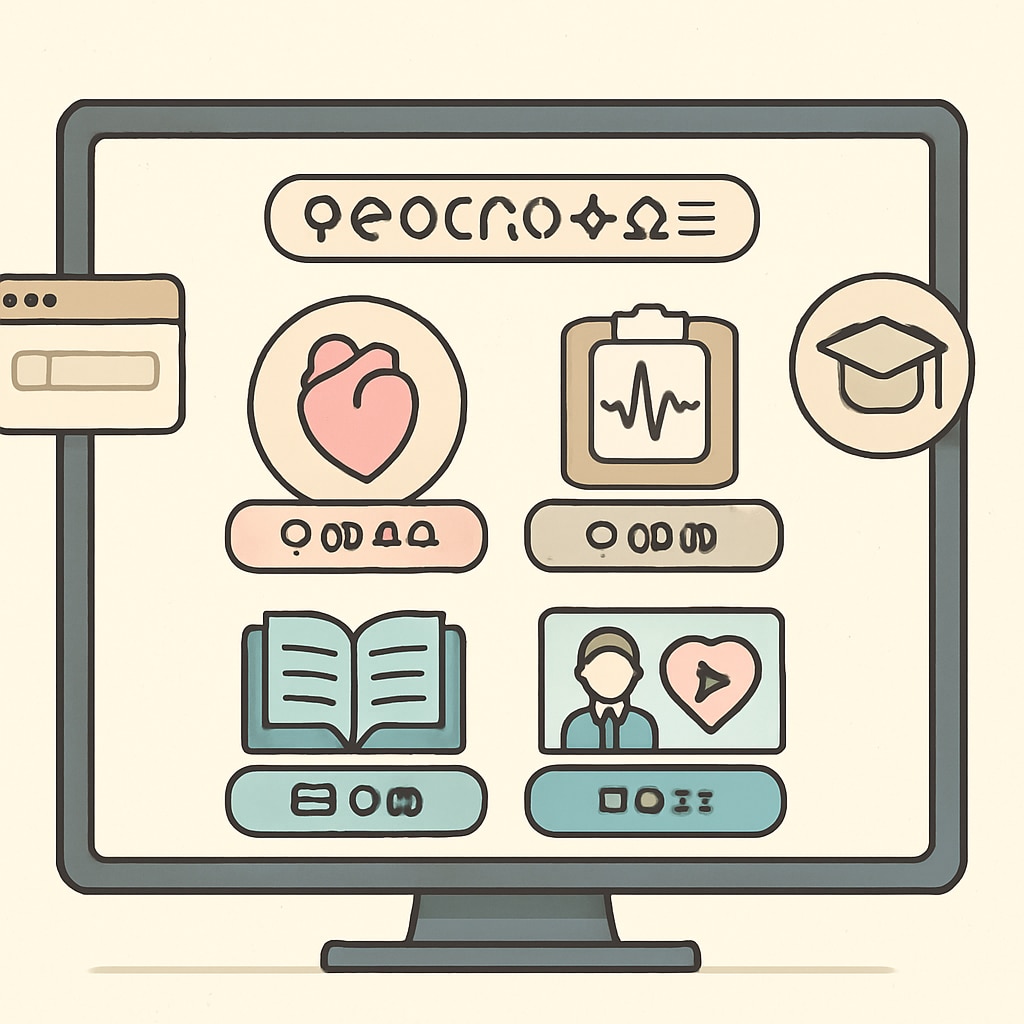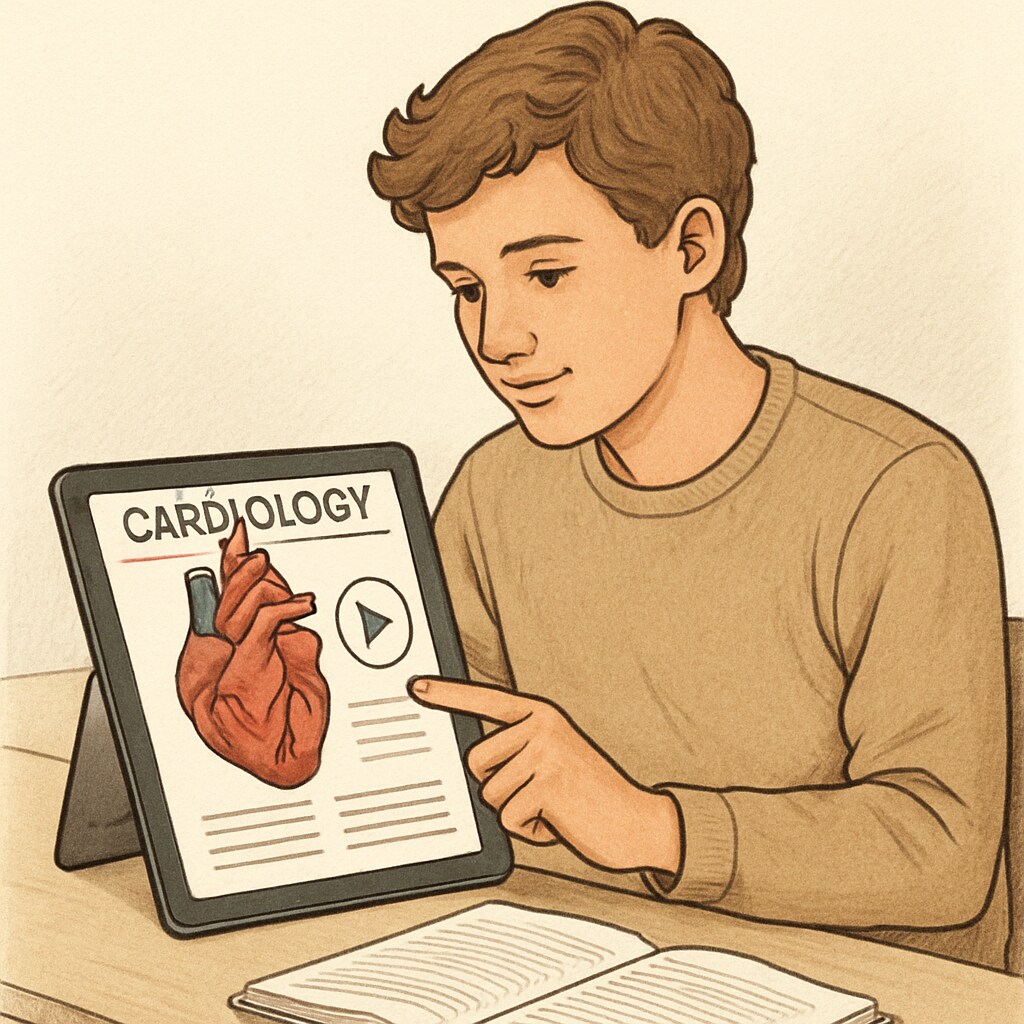For non-medical students interested in cardiology, finding the right online courses or educational resources can be a daunting task. The field of medicine, especially cardiology, often uses technical language that may feel overwhelming for beginners. This article aims to provide a roadmap for students, including those at the K12 level, to navigate this challenge and identify accessible resources tailored to their needs.
Understanding the Needs of Non-Medical Students
Unlike medical professionals, non-medical students may lack a foundational understanding of anatomy, physiology, or medical terminology. This can make traditional cardiology resources, such as textbooks or advanced journals, difficult to comprehend. However, with the rise of online learning platforms and beginner-friendly materials, it’s possible to find resources that bridge this gap.
For example, platforms like Khan Academy offer free courses on health and medicine, including introductory lessons on the cardiovascular system. Similarly, Coursera provides more structured, beginner-friendly courses taught by professionals from top institutions.

Key Steps to Finding the Right Cardiology Resources
Here are some essential steps to help non-medical students discover the most suitable cardiology resources:
- Identify Your Goals: Determine whether you want a general understanding or in-depth knowledge. This will guide your choice of resource.
- Start with Basics: Look for resources that explain basic concepts like heart anatomy and blood circulation before diving into complex topics.
- Choose Interactive Platforms: Platforms with videos, quizzes, and visual aids can make learning more engaging.
- Check Reviews: Before enrolling in any course, check user reviews or ratings to ensure the content is beginner-friendly.
By following these steps, students can avoid feeling overwhelmed and instead focus on building a solid foundation in cardiology.
Recommended Resources for Beginner Cardiology Learners
Here are some highly recommended resources tailored for non-medical students interested in cardiology:
- Khan Academy: Offers free, beginner-friendly courses on the cardiovascular system.
- Coursera: Features online programs like “Introduction to Heart Health” from reputable universities.
- YouTube Channels: Channels like Armando Hasudungan offer visually engaging tutorials on heart anatomy and function.
- Books for Beginners: “The Human Heart: A Basic Guide” is an excellent introductory text for those unfamiliar with medical jargon.
These resources cater to different learning styles, whether you prefer watching videos, reading, or engaging in interactive exercises.

Overcoming Common Challenges
Non-medical students often face challenges such as understanding complex terms or staying motivated. Here’s how to address these issues:
- Use Glossaries: Many online courses include glossaries to simplify medical terms.
- Set Realistic Goals: Break your learning into small, manageable chunks to stay motivated.
- Join Forums: Online forums or study groups can offer support and answer questions.
As a result, these strategies can make the learning process more rewarding and less intimidating.
Conclusion
Exploring cardiology as a non-medical student doesn’t have to be overwhelming. By leveraging beginner-friendly resources, setting clear goals, and adopting effective learning strategies, students can build a strong foundation in this fascinating field. With platforms like Khan Academy and Coursera, knowledge is just a few clicks away. So, why wait? Start your journey into cardiology today!


